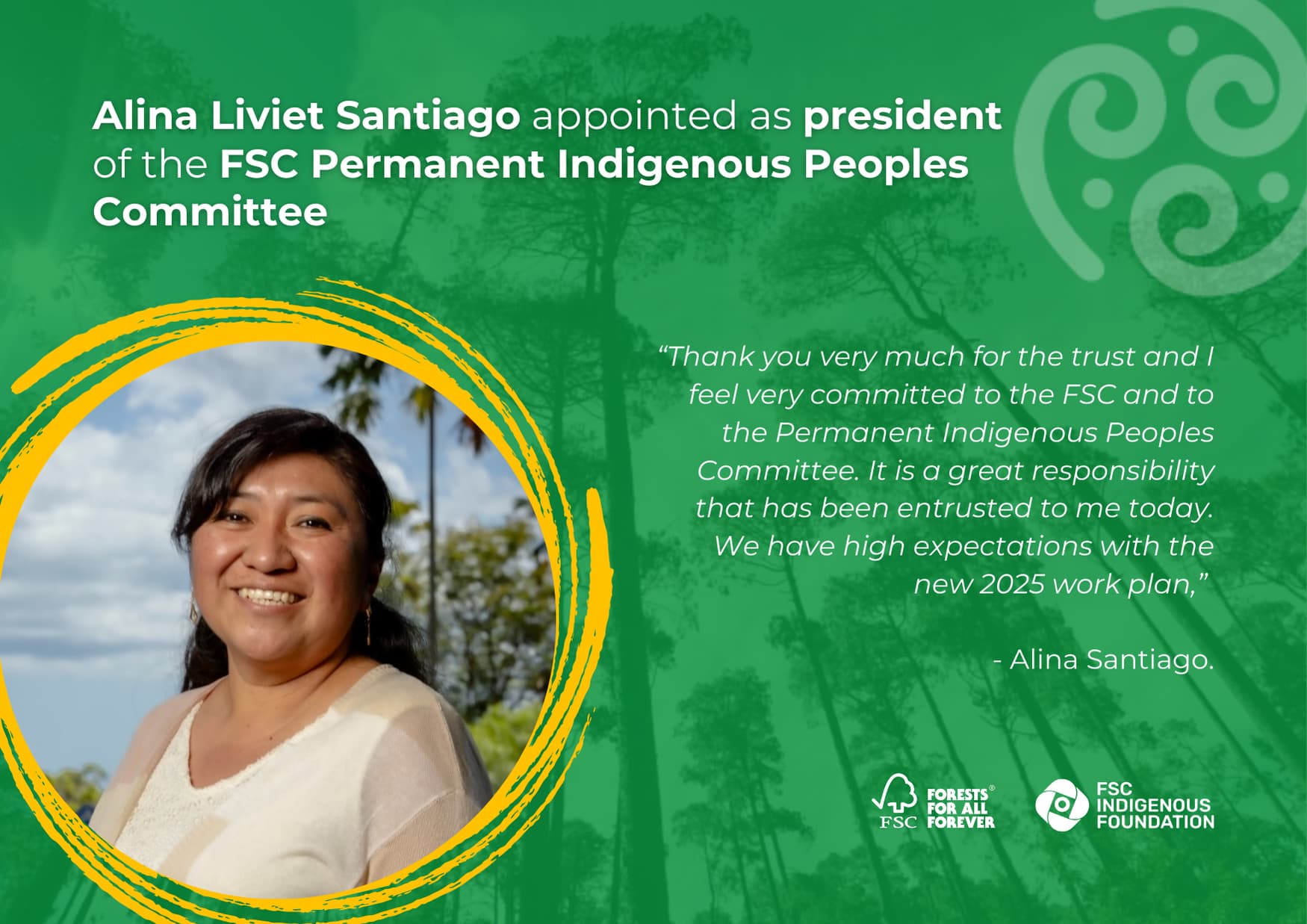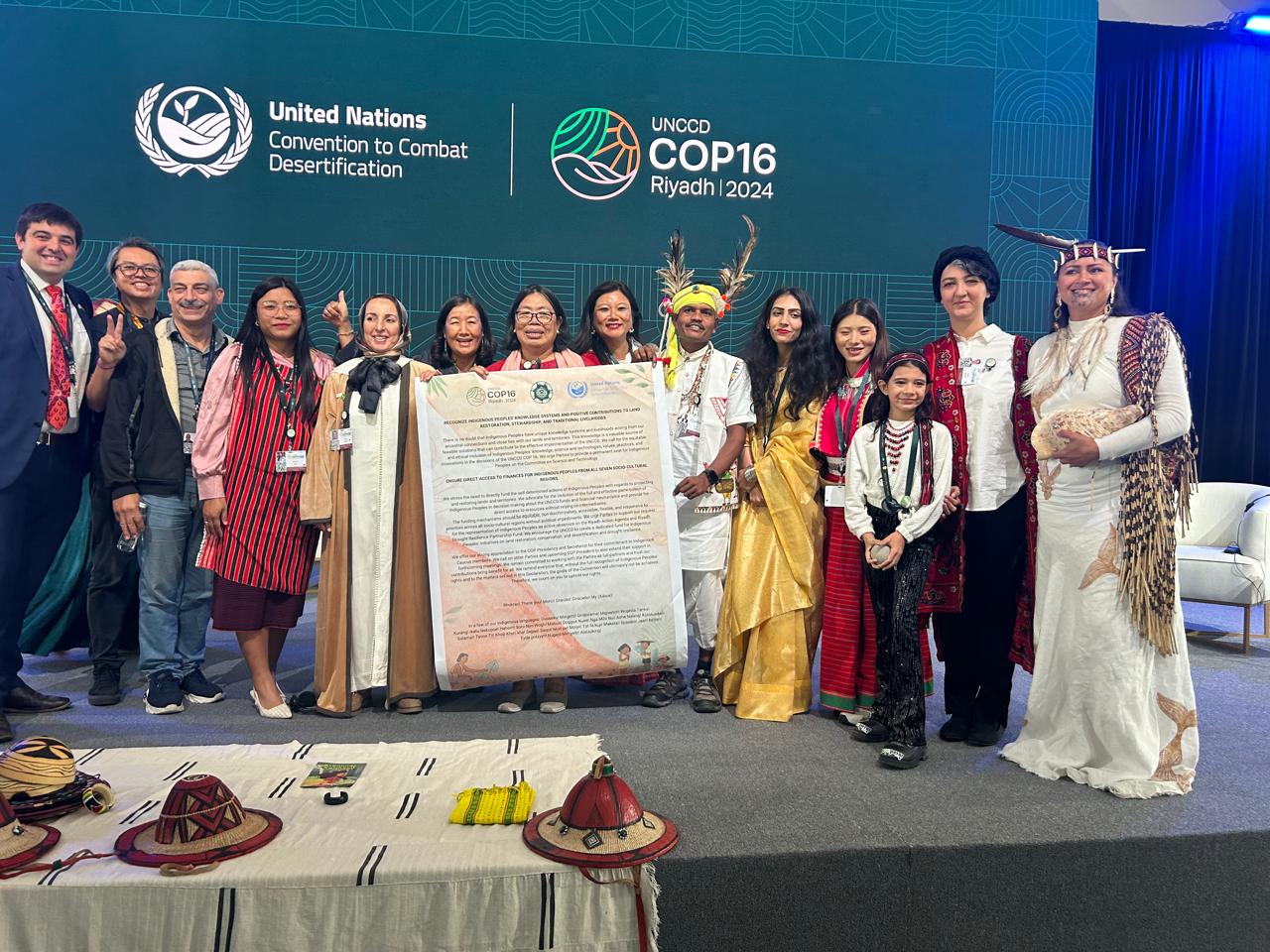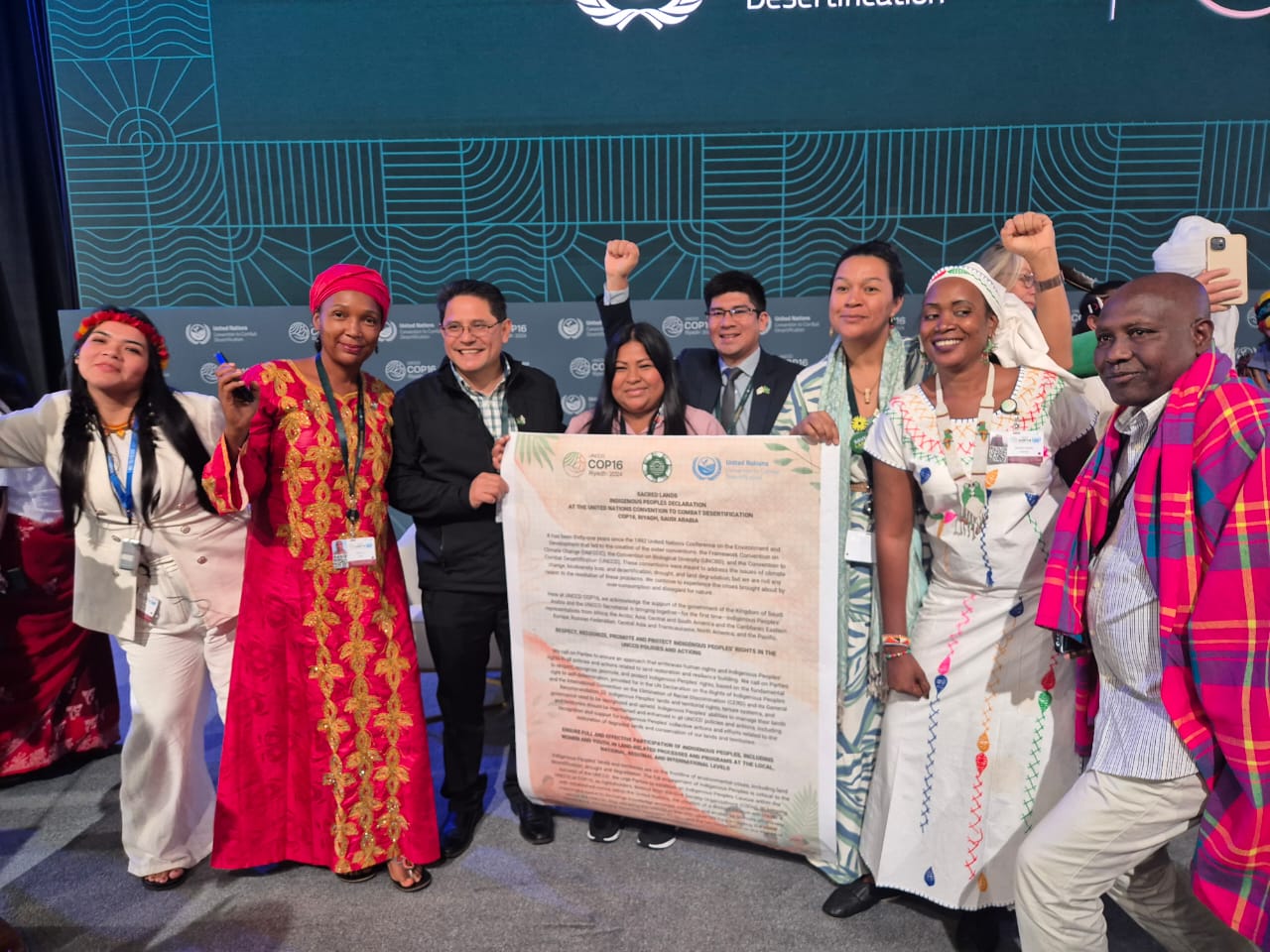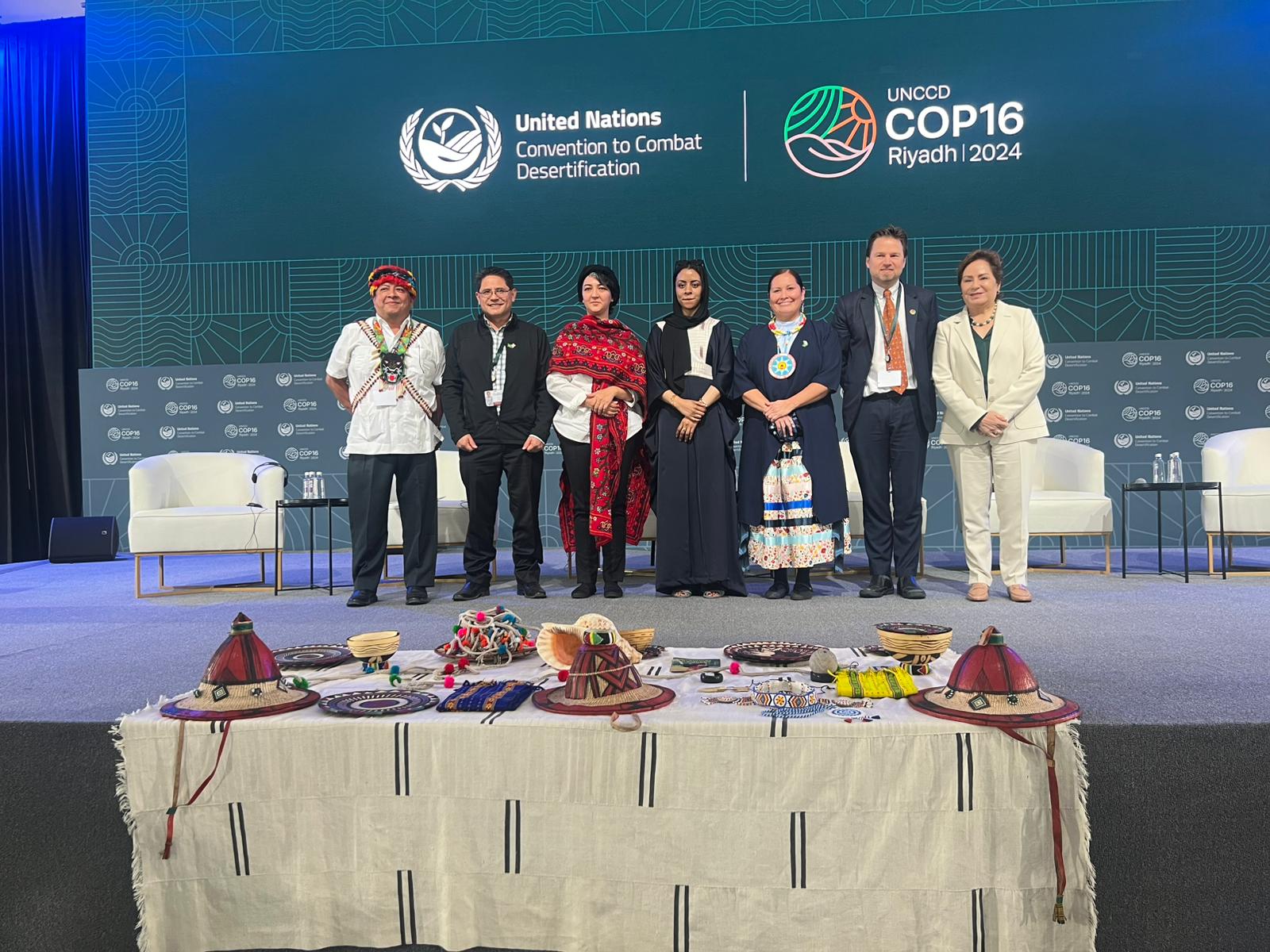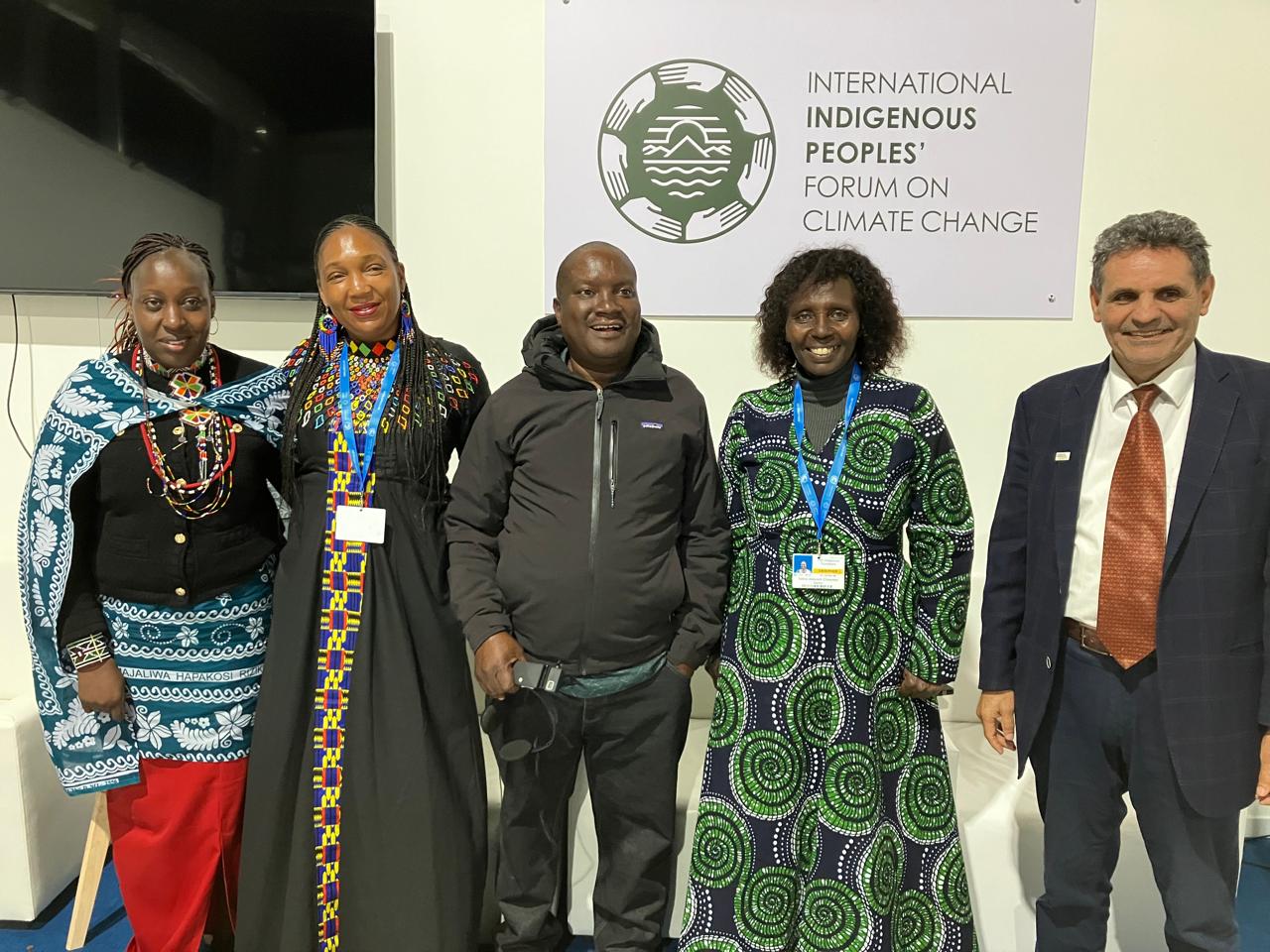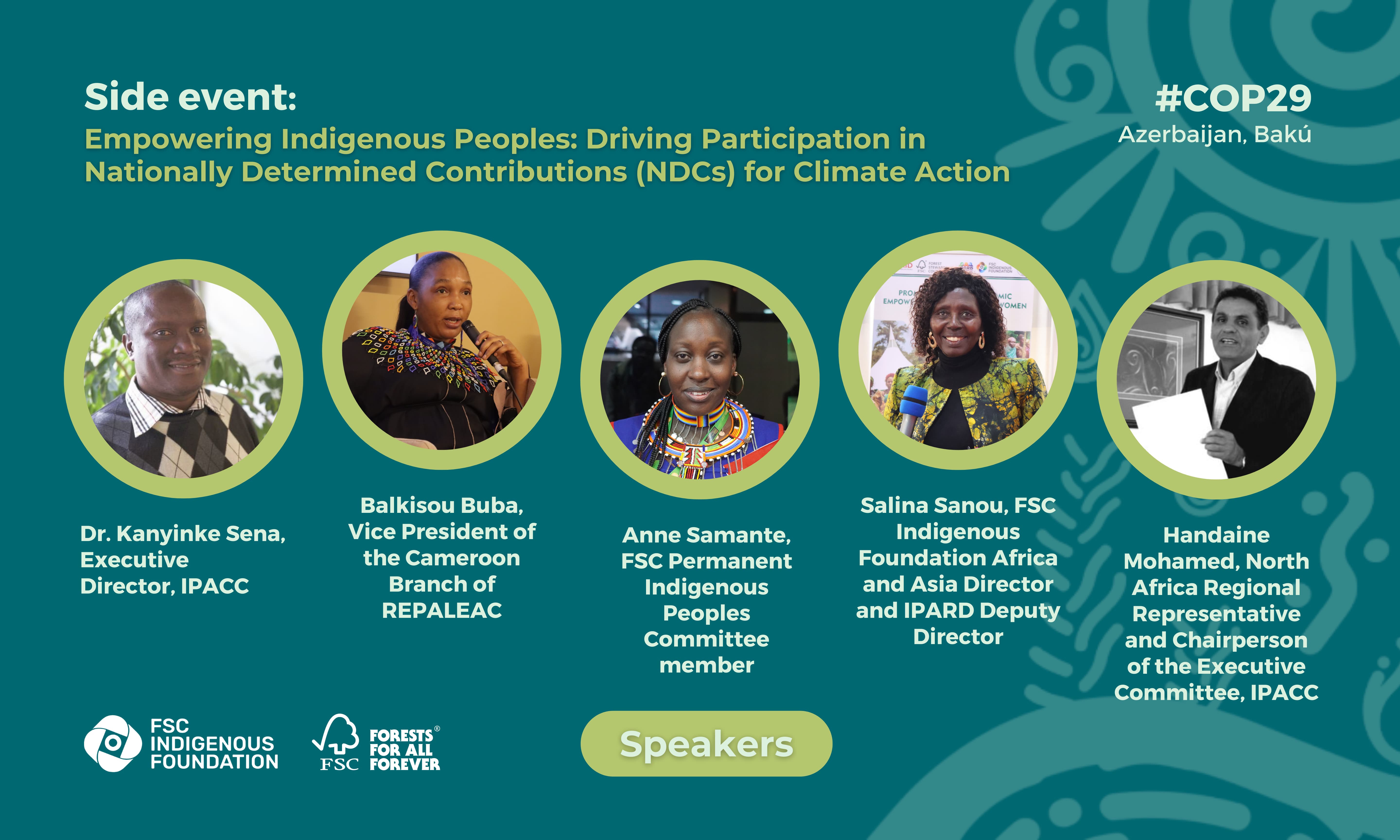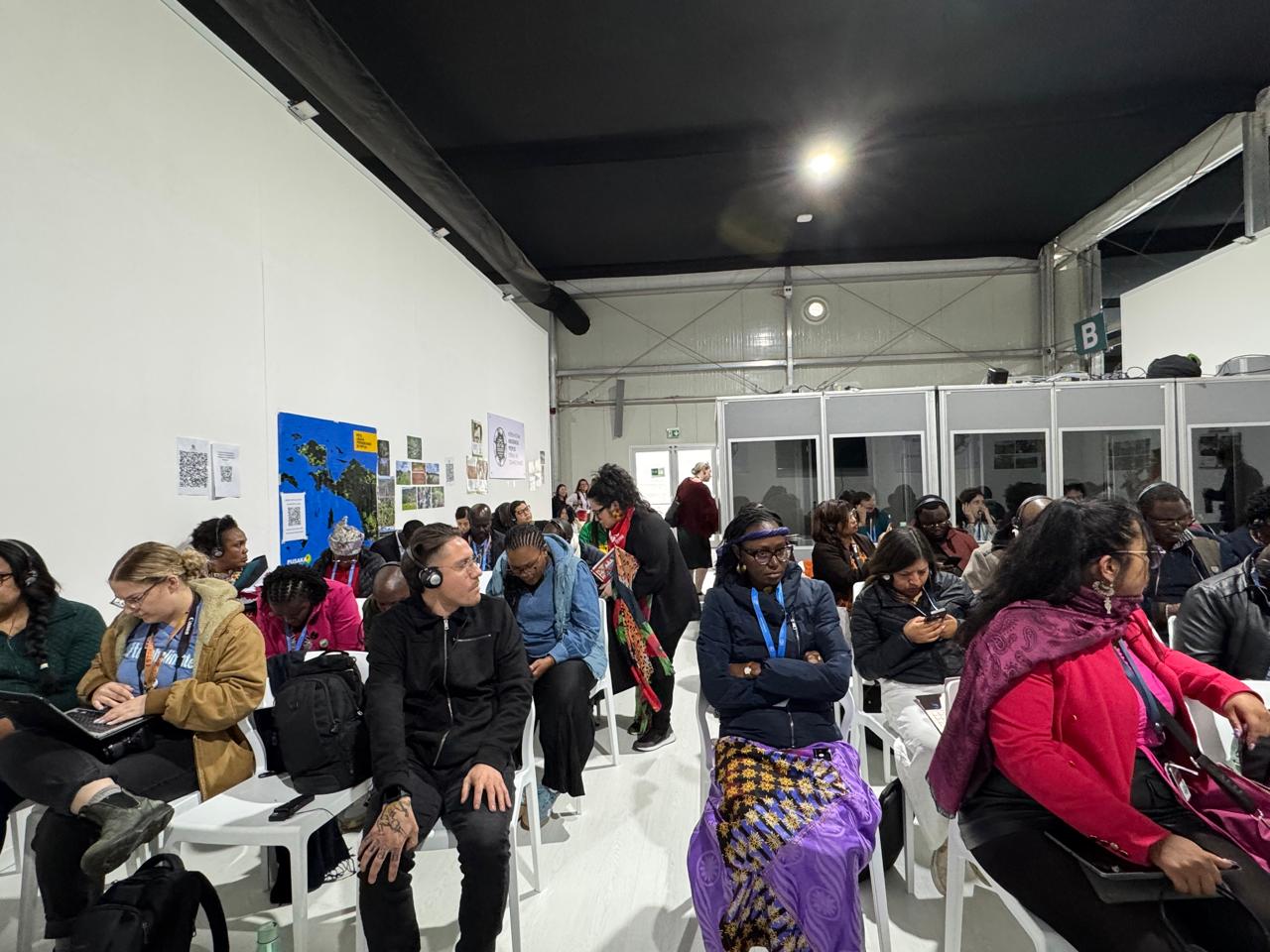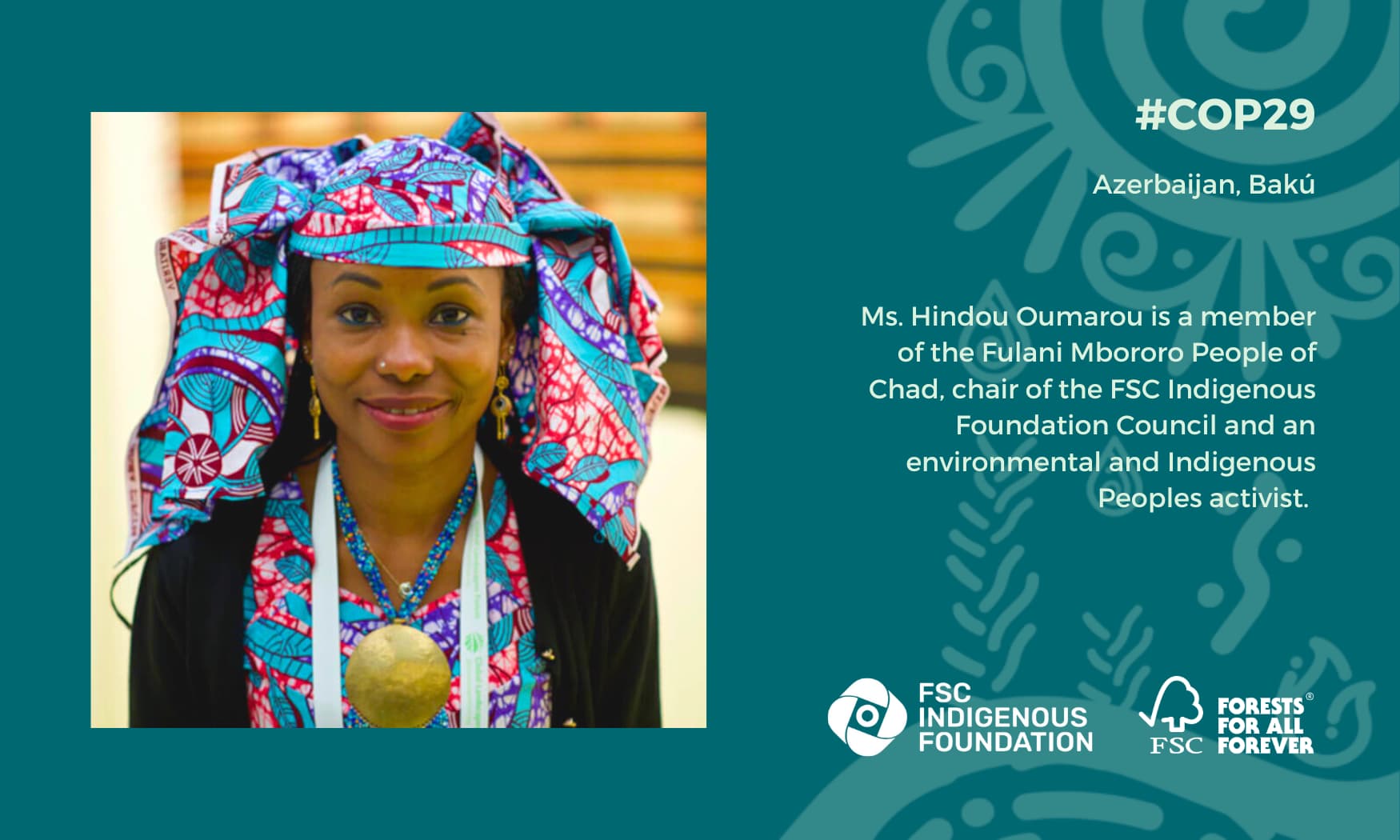FSC Indigenous Foundation welcomes Minnie Degawan as Managing Director
We are proud to announce the appointment of Minnie Degawan as its new Managing Director
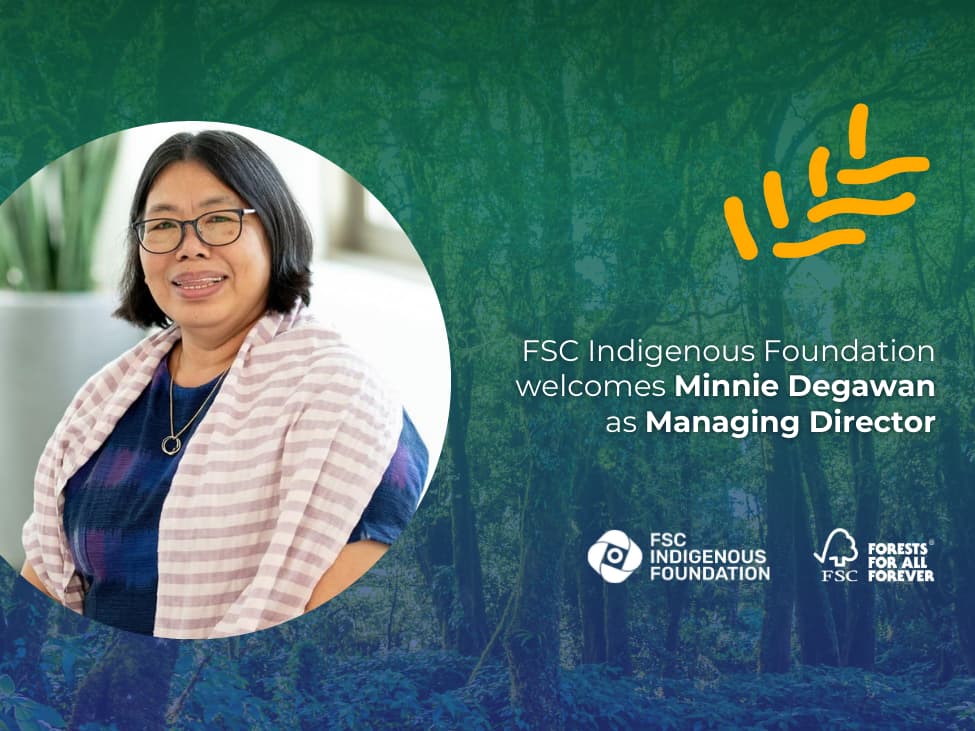
The FSC Indigenous Foundation (FSC IF) is proud to announce the appointment of Minnie Degawan as its new Managing Director, effective March 1, 2025.
With over thirty years of experience advocating for the rights of Indigenous Peoples and integrating their knowledge into global conservation efforts, Minnie’s leadership marks an exciting new chapter for the Foundation. Throughout her career, she has worked to ensure that Indigenous Peoples’ rights are upheld across diverse spaces, including in collaboration with the business sector—particularly within the forestry industry. This new role presents an opportunity to realize a long-held vision of bridging the business and Indigenous communities, fostering meaningful partnerships that drive both responsible forest stewardship and and respect for Indigenous rights.
Minnie, a member of the Kankanaey-Igorot people of the Cordillera region of the Philippines, brings a distinguished career to this position. She has most recently worked as a social safeguard’s consultant for The Nature Conservancy and previously as director of Conservation International’s Indigenous Peoples Program, where she co-led the GEF-funded Inclusive Conservation Initiative and secured funding. Her roles have included developing reallocation mechanisms for forest carbon finance, leading Indigenous negotiations programs, and fostering partnerships between Indigenous Peoples and global stakeholders.
Minnie’s strategic vision has driven transformational change throughout her career. As Managing Director, her goal is to position the FSC Indigenous Foundation as a globally recognized and influential organization that not only promotes the recognition and practice of Indigenous Peoples’ rights but also ensures their full integration into FSC’s global framework. Through her leadership, FSC-IF is strengthening its role as a bridge between Indigenous communities and sustainable forest management, advocating for policies, and economic opportunities that empower Indigenous Peoples as key actors in global conservation efforts.
“My vision for the Foundation is for it to be recognized globally as a credible Indigenous Peoples’ organization that can partner with diverse stakeholders to promote the recognition and actual practice of Indigenous Peoples’ rights,” Minnie said. “Through collaboration, inclusion and empowerment, we can ensure that indigenous voices are not only heard but are at the forefront of sustainability efforts.”
Hindou Oumarou Ibrahim, President of the FSC Indigenous Foundation, praised Minnie’s extensive experience and dedication:
“Minnie’s leadership is a beacon of hope for indigenous peoples around the world. Her deep understanding of the challenges and opportunities facing indigenous communities, combined with her track record of advocacy and partnership building, will take the FSC Indigenous Foundation to new heights. ”
The Permanent Indigenous Peoples’ Permanent Committee (PIPC), as an advisor to the FSC Board of Directors and a representative of the Indigenous voices and Peoples certified by the FSC, expresses, through its chair, Alina Santiago, its willingness to continue collaborating with the new director to strengthen the FSC Indigenous Foundation.
“The goal is to establish the Foundation as an organization that equips Indigenous Peoples with the necessary tools to promote and enhance both their organizations and the sustainable use of their forest resources.“
Subhra Bhattacharjee, Director General of the Forest Stewardship Council International and Founder of the FSC Indigenous Foundation, highlighted the importance of Minnie’s appointment:
“The FSC Indigenous Foundation was founded to create a platform for Indigenous Peoples to lead global dialogues on sustainability and responsible forest stewardship. Minnie’s appointment represents a strong step forward in fulfilling this mission.”
The FSC Indigenous Foundation also expresses its deep gratitude to Sarah Banda-Genchev, who has worked with the Forest Stewardship Council (FSC) for over a decade and has served as Management Consultant and Acting Interim Managing Director of the FSC-IF since February 2024.
Under Minnie Degawan’s leadership, the FSC Indigenous Foundation is strengthening its impact by fostering global partnerships and advancing the rights and values of Indigenous Peoples. A key pillar of this work is supporting Indigenous-led solutions, ensuring that Indigenous communities can benefit from sustainable forestry while preserving their traditional knowledge and land stewardship practices. Minnie’s vision of global collaboration and recognition will drive meaningful and sustainable change, positioning Indigenous Peoples as leaders in responsible forest management and ensuring their full participation in the global FSC framework.
About the FSC Indigenous Foundation
The FSC Indigenous Foundation (FSC-IF) is a global organization dedicated to advancing Indigenous Peoples’ rights, values, and leadership within the Forest Stewardship Council (FSC) framework. Committed to promoting sustainable forest management, the Foundation works to increase Indigenous participation in FSC certification, governance, and decision-making. By fostering partnerships, advocating for Indigenous-led solutions, and integrating traditional knowledge into forest stewardship, FSC-IF strives to create a future where forests are sustainably managed with Indigenous Peoples as key actors in conservation, climate resilience, and equitable economic opportunities.
For media inquiries, please contact:
Maria De Leon
Communications Specialist
m.deleon@fsc.org

